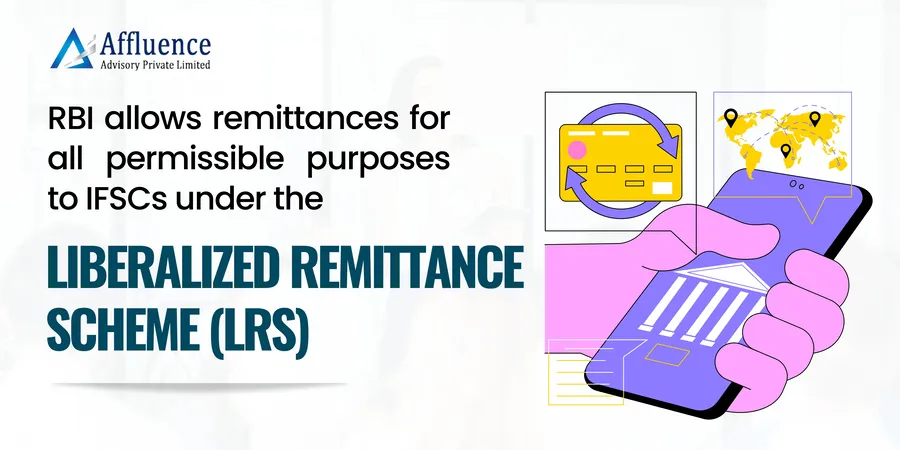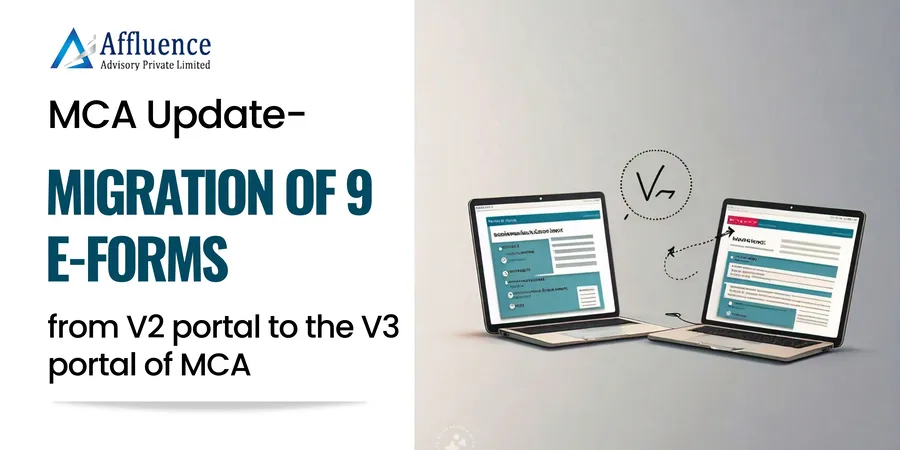A company incorporated outside India have an option to have an office in India by way of a branch office (BO), a liaison office (LO) and a project office (PO). These offices can be set up in India subject to fulfillment of certain conditions and within the framework of the Reserve Bank of India.
Investment Route – for BO / LO / PO
Automatic Route
Where the principal business of the foreign entity falls under sectors where 100 per cent Foreign Direct Investment (FDI) is permissible under the automatic route.
Government Route
Where the principal business of the foreign entity falls under the sectors where 100 per cent FDI is not permissible under the automatic route. Applications from entities falling under this category and those from Non – Government Organisations / Non-Profit Organisations / Government Bodies / Departments require government approval.
Prior Government Approval – for BO / LO / PO
- Citizen of or Registered/ Incorporated in Pakistan
- Whose principal business falls in Defence, Telecom, Private security and Information and Broad casting **
- NGO, NPO or a Body/ Agency/ Department of a foreign government, except cases covered under FCRA
- Citizen of or Entities registered/incorporated in Bangladesh, Sri Lanka, Afghanistan, Iran, China, Hong Kong or Macau and application for opening LO/BO in Jammu and Kashmir, North East region and Andaman and Nicobar Islands (i.e. AD bank can permit to open office without referring matter to RBI if application is in other cities/states excluding Jammu and Kashmir, North East region and Andaman and Nicobar Islands
** Prior approval not required where Government approval or license/permission by concerned Ministry/Regulator has already been granted. Further, in the case of proposal for opening a PO relating to defence sector, no separate reference or approval of Government of India shall be required if the said non-resident applicant has been awarded a contract by/ entered into an agreement with Ministry of Defence or Service Headquarters or Defence Public Sector Undertakings
| Branch Office | As a Branch Office (“BO”) in India, foreign companies can conduct full-fledged business in India. BO can carry the same or substantially the same trading activities as carried out by their parent or group companies. |
| Governing Law |
| Establishment of a Branch Office of a foreign entity in India is regulated in terms of Section 6(6) of Foreign Exchange Management Act, 1999 (“FEMA“) read with FEMA 22(R)/ 2016-RB, dated 31.03.2016: Foreign Exchange Management (Establishment in India of Branch Office or Liaison Office or a Project Office or any other Place of Business) Regulations, 2016 and Master Direction No. 10/2015-16 Dated 1-1-2016: Master Direction on Establishment of Branch Office (BO)/ Liaison Office (LO)/Project Office (PO) or any other Place of Business in India by Foreign Entities as amended from time to time. A branch office of a foreign company in India upon approval from the RBI must be compulsorily registered under the (Indian) Companies Act, 2013. Upon registration under the Companies Act 2013, the branch office can carry on its business activities in the same way as a domestic company. |
| Eligibility criteria – | a profit making track record during the immediately preceding five financial years in the home country. |
Permissible activities –
|
|
|
|
|
Export/import of goods |
Rendering professional or consultancy services. |
Carrying out research work in which the parent company is engaged. |
|
Promoting technical or financial collaborations between Indian companies and parent or overseas group company. |
Representing the parent company in India and acting as buying/ selling agent in India. |
Rendering services in Information Technology and development of software in India |
|
Rendering technical support to the products supplied by parent/group companies. |
Representing a foreign airline/shipping company. |
|
Restrictions –
Retail trading activities of any nature is not allowed for a Branch Office in India.
A Branch Office is not allowed to carry out manufacturing or processing activities in India, directly or indirectly.
Profits earned by the Branch Offices are freely remittable from India, subject to payment of applicable taxes.
Bank Account –
A BO may approach any AD Category-I Bank in India to open an account for its operations in India. Credits to the account should represent the funds received from Head Office through normal banking channels for meeting the expenses of the office and any legitimate receivables arising in the process of its business operations. Debits to this account shall be for the expenses incurred by the BO and towards remittance of profit/winding up proceeds.
Branch office in SEZs –
There is a general permission to non-resident companies for establishing BO in the Special Economic Zones (SEZs) to undertake manufacturing and service activities subject to the conditions that:
- such BOs are functioning in those sectors where 100% FDI is permitted;
- such BOs comply with Chapter XXII of the Companies Act, 2013; and
- such BOs function on a stand-alone basis.
Taxation –
A BO is considered as an extension of a foreign company in India. Therefore, income earned by the BO is taxed in India in accordance with the taxation provisions applicable to foreign companies under the Act.
In case the provisions of a tax treaty between India and the country of which the foreign company is resident, are more beneficial than the Act, then it is open to the foreign company to elect being taxed under the provisions of the relevant tax treaty.
Closure of Branch office –
In the event of winding-up of business and for remittance of winding-up proceeds, the branch shall approach an AD Category – I bank with the required documents.
| Liaison Office | A Liaison office (‘LO’) also known as a representative office can be established in India to promote or facilitate the business of the parent company in India. An LO acts as a communication channel between the foreign headquarters and an Indian company. |
| Governing Law |
| Establishment of a Branch Office of a foreign entity in India is regulated in terms of Section 6(6) of Foreign Exchange Management Act, 1999 (“FEMA“) read with FEMA 22(R)/ 2016-RB, dated 31.03.2016: Foreign Exchange Management (Establishment in India of Branch Office or Liaison Office or a Project Office or any other Place of Business) Regulations, 2016 and Master Direction No. 10/2015-16 Dated 1-1-2016: Master Direction on Establishment of Branch Office (BO)/ Liaison Office (LO)/Project Office (PO) or any other Place of Business in India by Foreign Entities as amended from time to time. |
|
Eligibility criteria – |
A profit-making track record during the immediately preceding three financial years in the home country. Net Worth – of not less than USD 50,000 or its equivalent i. e. total of paid-up capital and free reserves less intangible assets as per the latest Audited Balance Sheet or Account Statement certified by a Certified Public Accountant or any Registered Accounts Practitioner by whatever name called. |
|
|
|
|
|
Representing the parent company / group companies in India. |
Promoting export / import from / to India |
Promoting technical/ financial collaborations between parent / group companies and companies in India. |
|
|
Acting as a communication channel between the parent company and Indian companies. |
|
Bank Account –
An LO may approach the designated Authorised Dealer (AD) Category-I Bank in India to open an account to receive remittances from its Head Office outside India. It may be noted that an LO shall not maintain more than one bank account at any given time without the prior permission of Reserve Bank of India. The permitted Credits and Debits to the account shall be:
Credits
Funds received from Head Office through normal banking channels for meeting the expenses of the office.
Refund of security deposits paid from LO’s account or directly by the Head Office through normal banking channels.
Refund of taxes, duties etc., received from tax authorities, paid from LO’s bank account. Sale proceeds of assets of the LO
Debits
Only for meeting the local expenses of the office.
Taxation –
LO is not permitted to carry on any industrial, trading or commercial activities, nor to earn any income in India. However, sec 139(1) requires all companies to furnish a return of income. Hence, LO would also be required to file their return of income in India.
Validity Period –
License is given for three years and the same can be renewed every three years.
But, in the case of Non-Banking Finance Companies (NBFCs) and those entities engaged in construction and development sectors, the validity period is only two years, and no extension for these sectors (excluding infrastructure development companies) will be considered. Once the validity period expires, the liaison office has to either close down or be converted into a joint venture/wholly owned subsidiary in conformity with the FDI policy.
Closure of Liaison office –
For closure of the Liaison office, it shall approach an AD Category – I bank with the required documents
| Project Office | A Project Office (‘PO’) can be established when a foreign company has been awarded a contract to execute a project in India from an Indian company. A PO is valid till the conclusion of the project. |
| Governing Law |
Establishment of a Branch Office of a foreign entity in India is regulated in terms of Section 6(6) of Foreign Exchange Management Act, 1999 (“FEMA“) read with FEMA 22(R)/ 2016-RB, dated 31.03.2016: Foreign Exchange Management (Establishment in India of Branch Office or Liaison Office or a Project Office or any other Place of Business) Regulations, 2016 and Master Direction No. 10/2015-16 Dated 1-1-2016: Master Direction on Establishment of Branch Office (BO)/ Liaison Office (LO)/Project Office (PO) or any other Place of Business in India by Foreign Entities as amended from time to time. Project office of a foreign company can be set up in India only after obtaining the permission from Reserve Bank of India. Before setting up a project office in India, foreign companies need to secure a contract with an Indian company to start a project. A Foreign company establishing a project office in India is required to be registered with the Registrar of Companies (ROC) and to comply with certain procedural formalities, as prescribed under the Companies Act, 2013 and RBI guidelines. |
|
Eligibility criteria – |
To establish a PO in India, the following additional conditions are required to be met in addition to the contract being awarded to the foreign company: |
Permissible activities –
The activities of the project office would depend upon the nature of the contract awarded by the Indian company to the foreign company.
Bank Account –
Any foreign entity except an entity from Pakistan who has been awarded a contract for a project by the Government authority/Public Sector Undertakings or are permitted by the AD to operate in India may open a bank account without any prior approval of the Reserve Bank.
An entity from Pakistan shall need prior approval of Reserve Bank of India to open a bank account for its project office in India.
Project office can have two foreign currency accounts- one denominated in USD and other in the home currency of the awardees of the project- but with the same bank.
The permissible debits to the account shall be payment of project related expenditure and credits shall be foreign currency receipts from the Project Sanctioning Authority and remittances from parent/group company abroad or bilateral / multilateral international financing agency.
The foreign currency accounts have to be closed at the completion of the project.
Taxation –
A PO is considered as an extension of a foreign company in India. Therefore, income earned by the project office is taxable in India in accordance with the taxation provisions applicable to foreign companies under the Income-tax Act, 1961 (“Act”).
Validity Period –
There is no particular time limit as to the duration of the project office. The same shall be subject to the contract between the foreign company and the Indian company.
Closure of Project office –
Reserve Bank of India has granted general permission for closure of Project office and for remittance of surplus money on completion/winding up of the project subject to fulfillment of certain conditions.
|
Annual Compliance applicable to BO / LO / PO |
|||
|
Form Name |
Description |
Due date |
Authority |
|
|
|
|
|
|
Form 49C * |
Annual Statement under section 285 of the IT Act |
30th May every year |
Income Tax |
|
|
|
|
|
|
FC-4 |
Annual return of foreign company |
30th May every year |
ROC |
|
|
|
|
|
|
FC-3 |
Annual accounts with list of principal places in India by foreign companies |
30th Sept every year |
ROC |
|
|
|
|
|
|
AAC, Annual Accounts |
Annual activity certificate along with annual accounts |
30th Sept every year ** |
AD Bank, DGIT, DGP |
|
|
|
|
|
|
DGP Annexure (applicable to entities from specified countries) |
Various information |
Not yet prescribed |
DGP, AD Bank |
|
|
|
|
|
|
ITR-6 |
Income tax return filing by companies |
30th Sept /30th Nov every year *** |
Income Tax |
|
|
|
|
|
|
* Applicable to LO Only ** No due date prescribed for PO *** For BO & PO if Transfer Pricing is applicable |
|||











